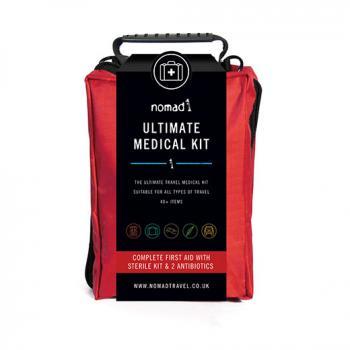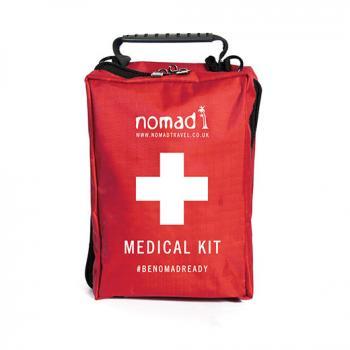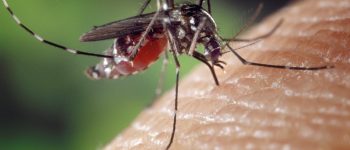Recommended Vaccinations for Thailand
Recommended to all travellers: Hepatitis A, Tetanus
Recommended to some travellers: Cholera, Diphtheria, Hepatitis B, Japanese Encephalitis, MMR, Rabies, Typhoid, Yellow Fever
A certificate of vaccination against Yellow Fever may be required to enter Thailand, see below for advice
Vaccines Recommended to All Travellers to Thailand
All travellers to all areas of this country are advised to have these vaccinations along with staying up to date with the routine vaccination schedule for the UK. Book a consultation for a full travel health risk assessment.
Hepatitis A
Hepatitis A is a virus spread through food, water or contact with an infected person that affects the liver. Vaccination against Hepatitis A is recommended, as well as adequate food & water hygiene. Click here for full information on Hepatitis A.
- 1 dose of Hepatitis A is required
- Given a minimum of 2 weeks before travel
Tetanus
Tetanus is a disease caused by bacteria present in soil everywhere in the world. Tetanus causes painful muscle spasms and can lead to death. Click here for full information on Tetanus.
- 1 dose of Tetanus is required
- Given any time before travel
Vaccines Recommended to Some Travellers to Thailand
These vaccinations may be advised depending on the specific areas you are travelling to, your medical history and your itinary. Book a consultation for expert guidance on whether these vaccines are recommended for you.
Cholera
Cholera is caused by bacteria spread through food and water. Pre-travel vaccination against Cholera is advised, along with adequate food & water hygiene. Click here for full information on Cholera.
- 2 doses of Cholera are required
- Doses administered 1-6 weeks apart
- Given any time before travel
Diphtheria
Diphtheria is a bacterial disease spread through close contact with infected persons. Click here for full information on Diphtheria.
- 1 dose of Diphtheria is required
- Given any time before travel
Hepatitis B
Hepatitis B is viral disease that is spread through blood and bodily fluids. Click here for full information on Hepatitis B.
- 3-4 doses of Hepatitis B are required
- 21 days apart with a further dose 1 year later for full protection
- Given any time before travel
Japanese Encephalitis
Japanese Encephalitis is a disease spread through the bite of an infected mosquito, which can cause inflammation of the brain. Japanese Encephalitis is most common in parts of Asia.
- 2 doses of Japanese Encephalitis are required
- Doses administered 28 days apart
- Given any time before travel
*Vaccination schedules are approximate and are calculated based on the first dose. Schedules are subject to change depending on your individual needs and will be discussed in your appointment. These are the minimum times required to complete courses or for vaccines to become fully effective. You can always start your course of vaccinations earlier than stated, as vaccines work best when your body has time to process them. Your Travel Nurse will discuss any health implications in your appointment
Malaria Risk in Thailand
Malaria is present in Thailand.
There is no vaccination for Malaria, you will need to take Antimalarial tablets as it is a high risk area. We recommend you have a consultation with our expert Travel Nurses to talk through your Antimalarial medication options.
For a detailed map of the Malaria risk in this country, click here (Source: fitfortravel)
Yellow Fever in Thailand
There is a risk of Yellow Fever in Thailand.
Yellow fever vaccination certificate is required for travellers over 9 months of age.
Other Health Risks
Chikungunya in Thailand
There is a risk of Chikungunya virus in this country. Spread by mosquitos, Chikungunya virus is widespread across Africa, South-East Asia, the Indian sub-continent and the Philippines. Occasionally, the virus can be found in other countries where the mosquito that spreads Chikungunya can also be found. There is no vaccination against Chikungunya, it is important to protect yourself with bite avoidance products like DEET. For more information – click here.
High Altitude in Thailand
There are some high altitude areas. Travellers should take care to avoid Acute Mountain Sickness (AMS) by taking time to acclimatise properly. AMS can affect anyone, regardless of age, gender, level of fitness or training. At high altitude, extra precautions should be taken against the harsh conditions, which can cause damaging ultraviolet and cold exposure. All Nomad Travel Health Nurses are trained to advise on AMS, and it may be appropriate for you to take certain medications that may help with acclimatisation. Book an appointment to discuss health issues related to altitude, based on your specific itinerary. For more information – click here.
Dengue Fever in Thailand
There is a risk of Dengue Fever. It is spread by a species of mosquito called Aedes aegypti, otherwise known as the ‘tiger mosquito’ which mainly bites during the day. The illness is widespread throughout the tropics and subtropics, affecting over 100 countries with approximately 50 million cases globally a year. Currently most infections occur in SE Asia, South and Central America, Mexico, Africa, Indian sub-continent, Hawaii and the Pacific. There is currently no vaccination against Dengue Fever, it is therefore important to protect yourself during the day with bite avoidance products like DEET. For more information – click here.
Leptospirosis in Thailand
There is a risk of Leptospirosis. Leptospirosis infection is widespread throughout the world, but cases are most common in tropical climates, areas where the standard of hygiene is poor and in areas subject to flooding. The infection occurs when cuts or abrasions of the skin and mucous membrane (eyes, mouth) come into contact with flood water, moist soil, vegetation (particularly bamboo) and fresh water infected by animal urine and other secretions. Prevention is dependent on covering cuts, scratches and open skin lesions with waterproof plasters, avoiding swallowing or drinking potentially infected water and, where risk is high, protective clothing should be worn.
Zika Virus in Thailand
Zika is a viral infection transmitted by daytime biting mosquitoes. These mosquitoes bite an infected person and then spread the infection to others when they bite again. Pregnant women are advised not to travel into Zika regions, and male partners must use condoms for 6 months after travel into affected areas to prevent sexual transmission of the disease to a pregnant partner. If planning pregnancy, female travellers should avoid getting pregnant for at least 8 weeks after being in a Zika region. Whereas men must avoid getting a woman pregnant for at least 6 months following travel into a Zika region as the virus can survive in sperm for much longer and can be sexually transmitted. For more information – click here.












